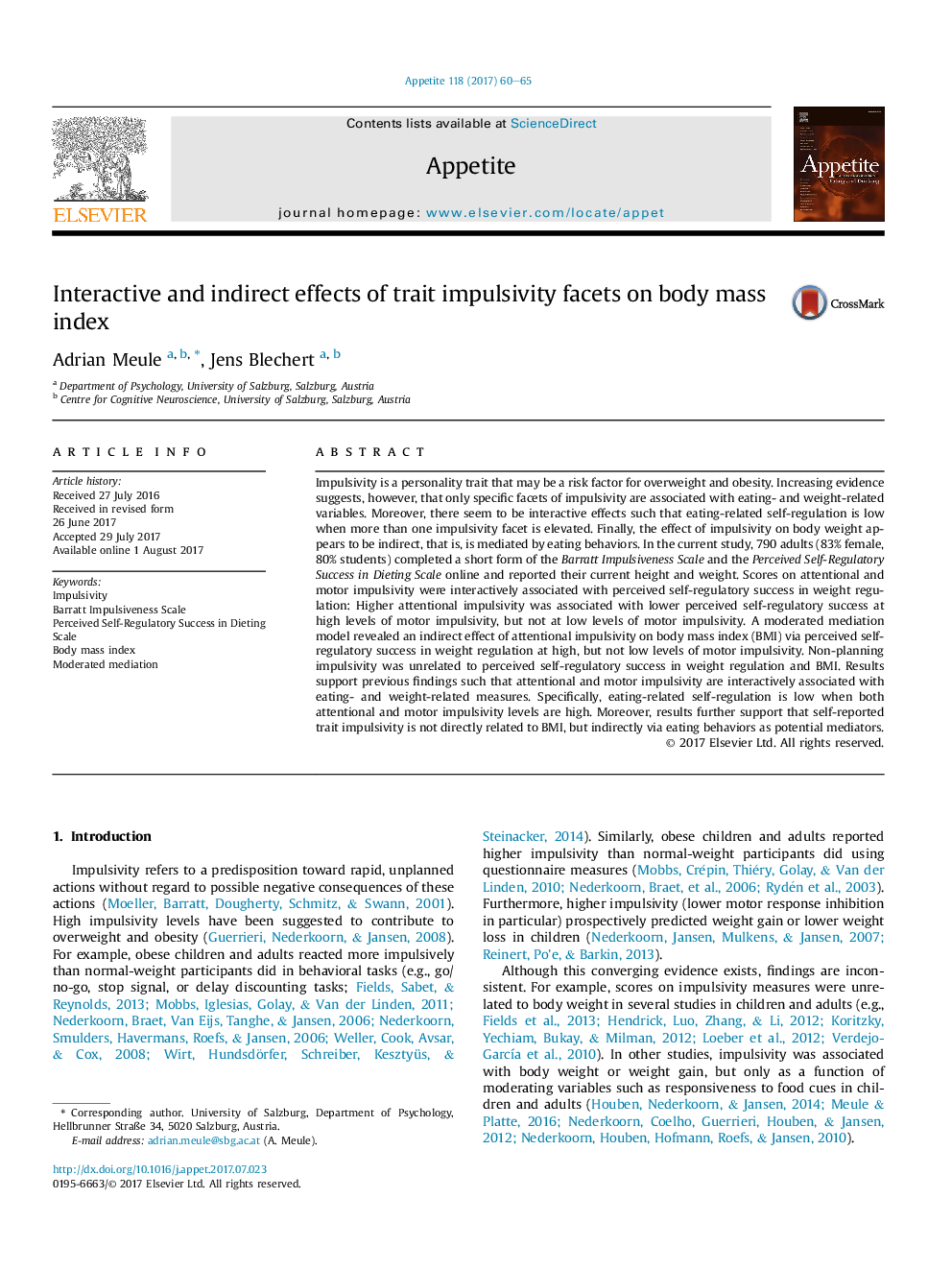| Article ID | Journal | Published Year | Pages | File Type |
|---|---|---|---|---|
| 5044222 | Appetite | 2017 | 6 Pages |
Impulsivity is a personality trait that may be a risk factor for overweight and obesity. Increasing evidence suggests, however, that only specific facets of impulsivity are associated with eating- and weight-related variables. Moreover, there seem to be interactive effects such that eating-related self-regulation is low when more than one impulsivity facet is elevated. Finally, the effect of impulsivity on body weight appears to be indirect, that is, is mediated by eating behaviors. In the current study, 790 adults (83% female, 80% students) completed a short form of the Barratt Impulsiveness Scale and the Perceived Self-Regulatory Success in Dieting Scale online and reported their current height and weight. Scores on attentional and motor impulsivity were interactively associated with perceived self-regulatory success in weight regulation: Higher attentional impulsivity was associated with lower perceived self-regulatory success at high levels of motor impulsivity, but not at low levels of motor impulsivity. A moderated mediation model revealed an indirect effect of attentional impulsivity on body mass index (BMI) via perceived self-regulatory success in weight regulation at high, but not low levels of motor impulsivity. Non-planning impulsivity was unrelated to perceived self-regulatory success in weight regulation and BMI. Results support previous findings such that attentional and motor impulsivity are interactively associated with eating- and weight-related measures. Specifically, eating-related self-regulation is low when both attentional and motor impulsivity levels are high. Moreover, results further support that self-reported trait impulsivity is not directly related to BMI, but indirectly via eating behaviors as potential mediators.
